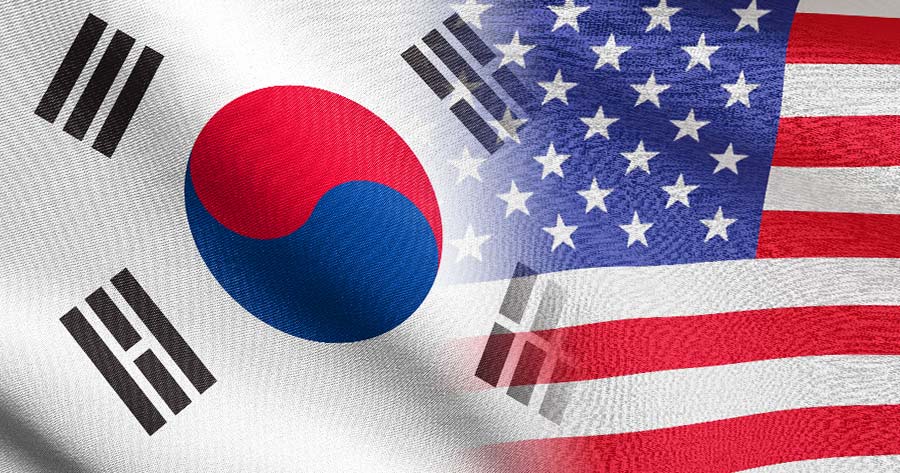The United States and South Korea have formalized a sweeping trade agreement involving $350 billion in Korean investment, prioritizing America’s shipbuilding and industrial sectors, according to a joint release on Friday.
The move follows an October summit between U.S. President Donald Trump and South Korean President Lee Jae Myung, resulting in a bilateral accord to reduce U.S. tariffs on South Korean exports to 15%, down from 25%.
The latest agreement concludes over three months of complex negotiations surrounding the Trump administration’s tariffs, which have unsettled major trading partners globally. South Korea, particularly reliant on exports such as semiconductors and automobiles, was especially concerned about the exposure to steep duties.
Under the deal, South Korea will allocate $150 billion toward the U.S. shipbuilding sector, with an additional $200 billion targeted for broader American industrial segments.
President Lee, who assumed office five months ago following turmoil from the failed martial law attempts of his predecessor, framed the deal as both an economic and diplomatic milestone, tying it to broader ambitions to strengthen national trade and security.
The White House detailed that part of the agreement includes U.S. approval for South Korea to build nuclear-powered submarines—a move anticipated to solidify defense ties as well as industrial synergies. The U.S. also pledged cooperation in sourcing fuel for these submarines and granted assurances for South Korea to eventually undertake civil uranium enrichment and spent fuel reprocessing for peaceful purposes.
Furthermore, a fact sheet specified that the announced $350 billion South Korean investment would be structured to limit currency volatility, capping installment transfers at no more than $20 billion annually to safeguard the won. Should market instability arise, South Korea holds the right to request adjustments in investment size or scheduling, with the U.S. committing to consider such requests in good faith.
Amid the trade terms, U.S. tariffs on South Korean products—including key exports like automobiles—will be reduced, while semiconductor tariffs will align with the conditions currently extended to Taiwan, as indicated by Seoul officials.
Security analysts have noted that while the acquisition of nuclear-powered submarines will not immediately transform the strategic balance, it marks a significant upgrade from other weapons systems, enhancing South Korea’s deterrence against regional threats. However, some experts pointed out that the broader nuclear and defense collaboration entails increased financial commitments from Seoul.
Friday’s accord follows an initial framework from July, in which South Korea pledged substantial U.S. investments in return for reduced tariffs. According to a presidential adviser, nuclear-powered submarines could potentially be manufactured in South Korea, though President Trump has previously mentioned the prospect of production taking place at a Korean-owned shipyard in Philadelphia.





